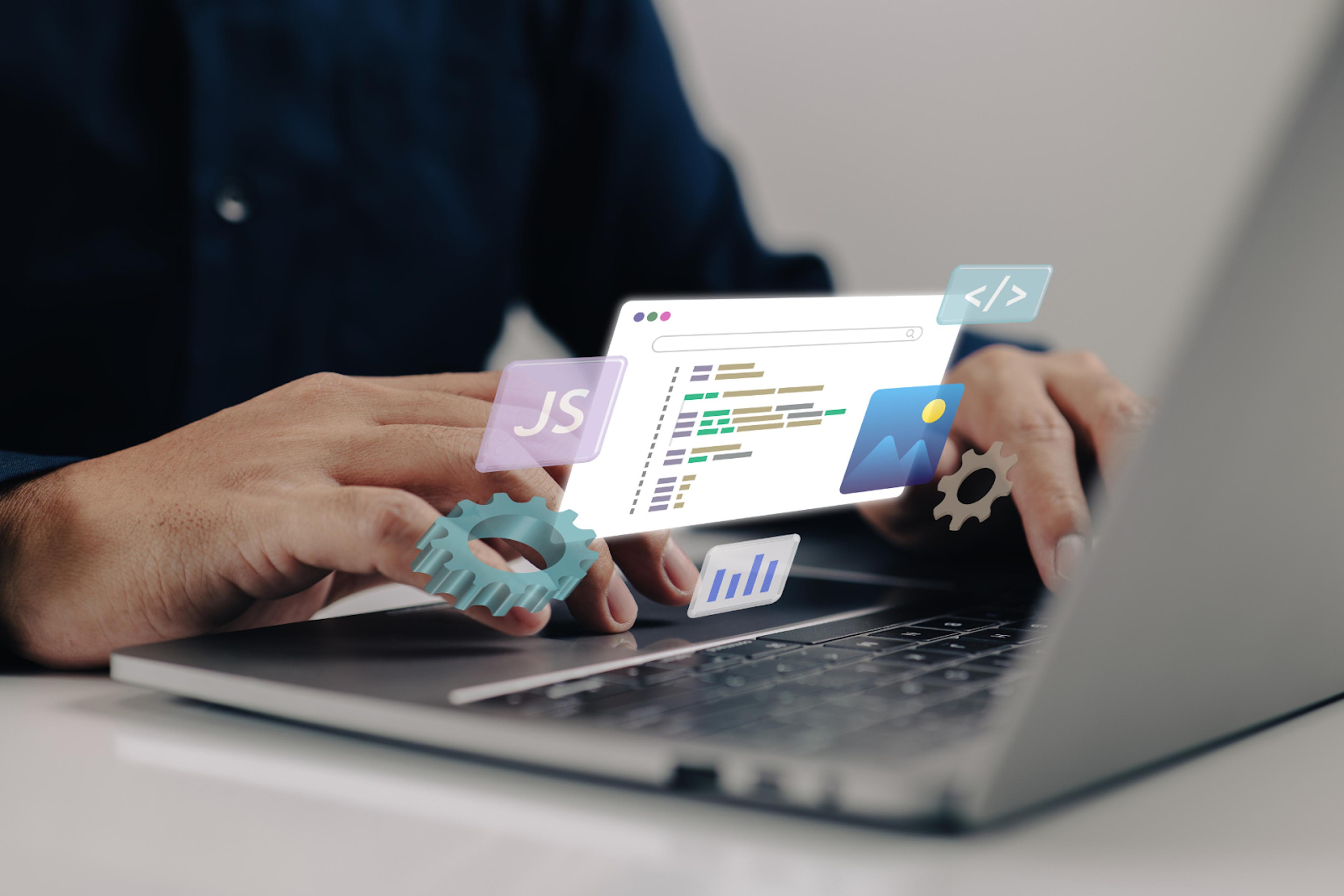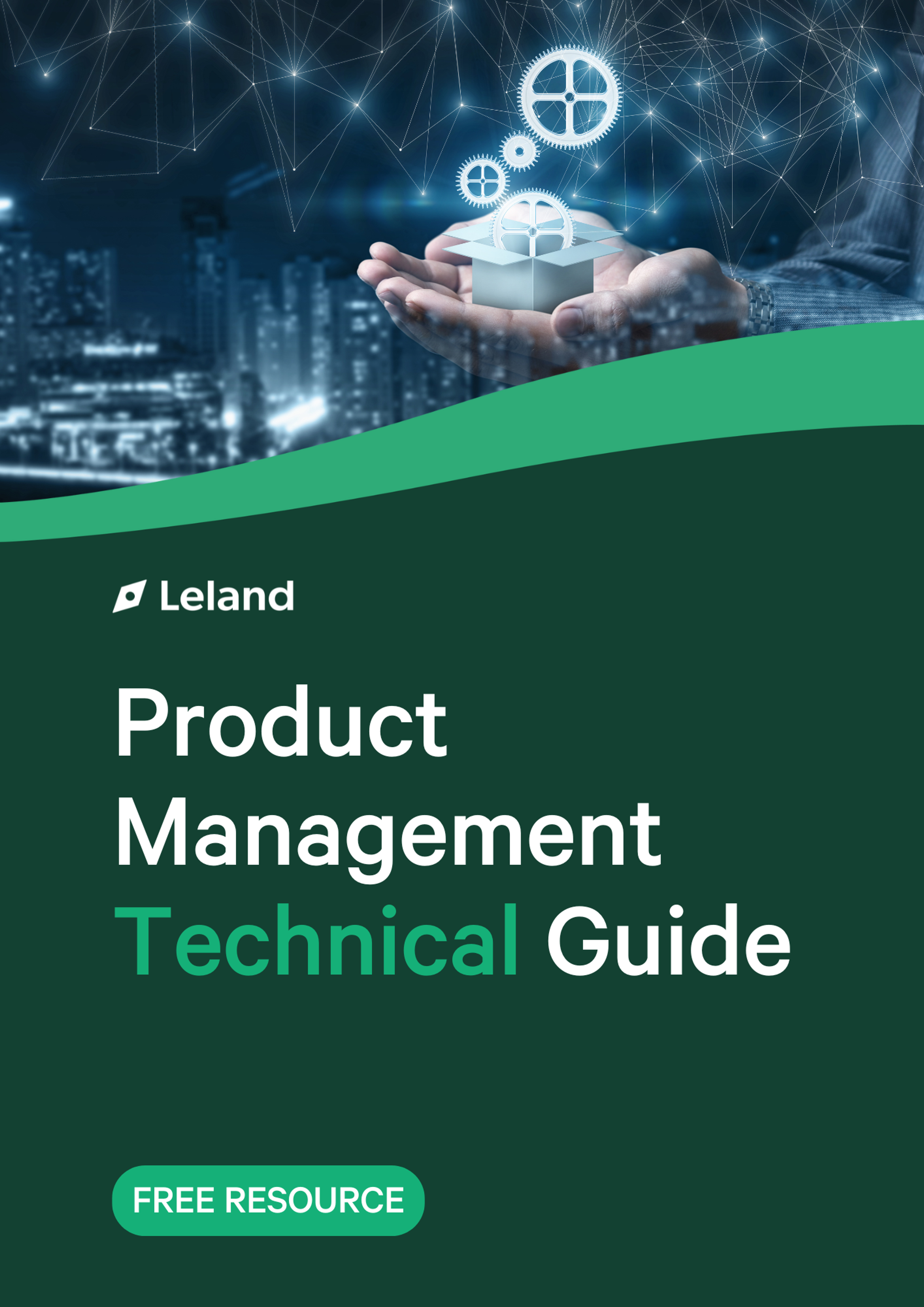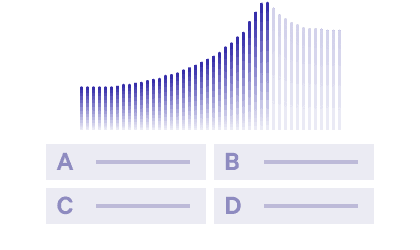Technical Product Manager: Role, Types, & Recruiting
What is a Technical Product Manager? Learn more about its types, responsibilities, job description, and its key differences to the traditional product management roles in this comprehensive guide.
Posted June 13, 2025

Join a free event
Learn from top coaches and industry experts in live, interactive sessions you can join for free.
Table of Contents
Technical product manager, the role that combines the best of both worlds: product management savvy and technical know-how. As technology keeps changing how we work and live, technical product managers are becoming key players in shaping the future of products and services. They're the bridge between complex tech and user-friendly solutions, making sure innovations meet real-world needs.
In this article, we'll break down what a technical product manager does and why it matters. You'll learn about the different types of technical product managers, the skills you need to succeed, and how this role differs from other product management positions. We'll also share tips on how to find and hire top technical product manager talent. Whether you're looking to become one or want to build a strong tech product team, this guide has got you covered.
What is a Technical Product Manager?
A technical product manager is someone who primarily focuses on the technical elements of a product, using their expertise in technology to solve complex challenges. They typically have a strong educational background and experience in fields like software development, data science, or engineering.
Unlike traditional product managers, TPMs focus more on the technical aspects of product development and work closely with the engineering team.
Key responsibilities
Technical product managers have a wide range of responsibilities that set them apart from other product management roles. They're tasked with:
- Creating and managing product roadmaps
- Translating technical requirements into actionable tasks
- Collaborating with engineering teams to define architecture and technical standards
- Conducting market research to identify new opportunities
- Managing technical debt and anticipating potential risks
- Providing internal and customer training on how to use a product
- Facilitating communication between business and engineering teams
One of the most important duties of a technical product manager is to make sure the product meets technical specifications while addressing any challenges that come up along the way. They also play a big part in making sure the product is top-notch by working with quality assurance and technical teams and setting up thorough testing strategies.
Difference from traditional product managers
Here’s a table to highlight the differences between Technical Product Managers (TPM) and Traditional Product Managers (PM) in terms of responsibility:
| Aspect | Technical Product Manager (TPM) | Traditional Product Manager (PM) |
| Focus | Manages technical aspects of product development | Focuses on overall product strategy and market fit |
| Collaboration | Works closely with engineering and development teams | Collaborates more with marketing, sales, and design teams |
| Technical Expertise | Requires in-depth technical knowledge (coding, architecture) | Requires a broad understanding of the product and business |
| Key Responsibility | Ensures product is technically feasible and scalable | Ensures product meets user needs and business goals |
| Decision-Making | Makes decisions on technical trade-offs and feasibility | Makes decisions on feature prioritization and user experience |
| Product Roadmap | Aligns the product roadmap with technical capabilities | Aligns the product roadmap with market trends and customer needs |
| Problem-Solving | Focuses on solving technical issues and bottlenecks | Focuses on solving business and customer-related challenges |
| Stakeholder Communication | Communicates with development and engineering teams | Communicates with executive teams, customers, and stakeholders |
| Project Scope | Handles complex technical projects | Manages product lifecycle and business strategy |
| Metrics of Success | Success is measured by technical performance and stability | Success is measured by product adoption and market success |
Job Description of a Technical Product Manager
A technical product manager's job largely aligns with typical product management but includes some additional technical responsibilities. Here’s a simplified breakdown of what you’ll often see in their role:
- Translate customer needs into clear, actionable requirements for the development team.
- Collaborate effectively with developers, engineers, and other internal teams to ensure expectations and requirements are met.
- Stay updated on technical trends, emerging products, and competitors, assessing their impact on your company and making informed technology recommendations.
- Conduct regular competitive analysis to keep the product relevant in the market.
- Provide training for internal teams and customers on how to use the product effectively.
- Address questions about the product’s functionality and capabilities.
- Identify and manage technical risks throughout the product life cycle.
- Understand data systems, algorithms, and automated processes to enhance product performance.
- Act as a product advocate and subject matter expert within the developer community.
- Oversee beta testing and gather feedback to refine the product.
- Analyze product performance using database queries and evaluate testing results.
- Set success metrics for product testing and acceptance.
- Ensure proper product documentation is created and maintained.
Explore the following free resources that can help you excel in the product management field:
- The 20 Most Important Product Manager Skills
- How to Develop Product Sense as a Product Manager | Leland
- The Most Common Technical Product Manager Interview Questions -- and How to Answer Them | Leland
- 20+ Free Product Management Resources | Leland
Types of Technical Product Managers
Technical product managers come in various specializations, each focusing on different aspects of product development. Let's explore the main types of technical product managers and their unique roles.
Software-focused TPMs
Software-focused technical product managers are experts in overseeing the development of digital products.
They work closely with engineering teams to guide product development, translating complex technical details into business value for non-technical stakeholders. These TPMs have a strong technical background in computer science or software development, which allows them to understand technical constraints better and validate the feasibility of product ideas.
Software TPMs are responsible for:
- Defining technical requirements
- Creating product roadmaps
- Managing the product backlog
They often work on products like APIs, data platforms, or complex backend systems. Their technical expertise enables them to assess engineering estimates accurately, review technical specifications, and participate in security and scalability discussions.
Hardware-focused TPMs
Hardware product managers deal with physical products.
The development cycle for hardware products tends to be longer and more complex due to the need for:
- Physical prototyping
- Manufacturing
- Testing
Hardware TPMs also need to validate product discovery results and translate them into clear product specifications before work on the product starts.
These technical product managers spend their time working closely with engineering teams to define architecture and technical standards for physical products. They also collaborate with software product managers, as hardware often requires software support. Hardware TPMs need to have a deep understanding of manufacturing processes, supply chain management, and quality control to ensure the successful development and launch of physical products.
Data-focused TPMs
Data product managers specialize in leveraging data to inform product development and refine existing products.
They work closely with data scientists, analysts, and engineers to collect, organize, and analyze data for data-driven decision-making. Data TPMs are crucial for companies that rely heavily on data analytics and machine learning to improve their products and services.
These TPMs are responsible for designing and developing products using data, applying various data science techniques, and managing data flow and engineering processes. They also develop data pipelines and evaluate data output to ensure long-term product performance. Data TPMs play a vital role in helping organizations evolve according to changing market conditions by providing data-driven insights and recommendations.
Key Skills for Technical Product Managers
Technical expertise
Breaking into technical product management requires technical product managers who need a strong foundation in technology (yes, we’re talking about your technical skills). You should have a deep understanding of:
- Software engineering principles
- Coding languages
- Architectural frameworks
- APIs and integrations
- Cloud computing platforms (e.g., AWS, Google Cloud)
- Database management systems (SQL, NoSQL)
- DevOps practices (CI/CD pipelines, version control)
- Cybersecurity basics
- Scalability and performance optimization techniques
This knowledge allows them to make informed decisions, grasp the challenges faced by engineering teams, and communicate effectively about complex technical issues. While coding isn't always a must-have skill, having a grasp of how software works is crucial. This helps them communicate effectively with developers and make smart decisions about the product's technical aspects.
Product strategy
Technical product managers must excel in product strategy to guide their products to success. This involves creating and managing product roadmaps, prioritizing features, and ensuring that development aligns with user needs and business goals. They need to understand various methodologies like Agile and Scrum to streamline the product development process. As they progress in their careers, technical product managers are expected to make decisions considering product-wide trade-offs, craft near-term product roadmaps that align with team and company goals, and effectively take into account strategy when making roadmap decisions.
Read: Product Strategy: What it Is and How to Build One
Communication skills
Effective communication is key for technical product managers. They need to explain technical details to non-technical audiences, negotiate with stakeholders, and understand customer needs. Strong interpersonal skills help resolve conflicts and motivate teams to work towards the product vision. Whether communicating with teams, executives, or customers, they must present complex ideas clearly and adapt their style to the audience.
Analytical thinking
Analytical thinking is essential for technical product managers to make data-driven decisions. This skill set includes understanding key performance indicators (KPIs), conducting A/B testing, and utilizing analytics tools to glean insights from user behavior and market data. Technical product managers should be proficient in data analysis, market research, and user analytics. They need to interpret and analyze quantitative data from sources like user metrics, sales figures, and market research. Familiarity with tools like Excel, SQL, or data visualization software is often required. By developing these analytical skills, technical product managers can make informed decisions that enhance product development and drive business success.

Product Management Technical Guide
Download our free guide to learn everything you need to know about technical skills for product management.
Technical Product Manager vs. Non-Technical Product Manager: What's the Difference?
Both technical product managers and non-technical product managers aim to deliver successful products, but their areas of focus and expertise differ. A technical product manager brings a strong technical background, working closely with engineering teams to ensure technical feasibility, while a non-technical product manager is more focused on product strategy, market dynamics, and customer needs.
Understanding the distinction between these roles can help you align your career goals with your skills and strengths. Here’s a breakdown of their key differences:
Technical Product Manager (TPM)
- Focuses on the technical aspects of product development.
- Works closely with the development team to define and oversee technical requirements.
- Bridges the gap between business goals and technical implementation, ensuring feasibility and scalability.
- Communicates technical challenges and solutions to both technical and non-technical stakeholders.
- Plays a key role in guiding technical projects and resolving technical issues that arise during development.
Non-Technical Product Manager
- Focuses on product strategy, customer needs, and market trends.
- Collaborates with cross-functional teams, including marketing, design, and sales.
- Defines the product’s vision and direction, aligning with business objectives and user demands.
- Acts as the voice of the customer, ensuring the product meets market needs and competitive standards.
- Spends more time managing the overall product lifecycle and aligning the team with business goals.
How to Recruit Top Technical Product Managers
Recruiting top technical product managers requires a strategic approach to find candidates with the right mix of technical expertise and product management skills.
Without further ado, let’s break down the step-by-step process of recruiting top technical product managers:
1. Define Clear Role Requirements
- Start by defining the specific skills and experience required for the technical product manager role in your company. Outline the necessary technical knowledge (coding, architecture, tools) as well as the key product management skills (roadmapping, cross-functional collaboration, strategy).
- Make sure the job description clearly differentiates between technical and non-technical product management tasks to attract the right candidates.
2. Source from Relevant Talent Pools
- Look beyond traditional product management channels and tap into communities where technical professionals are active (e.g., GitHub, Stack Overflow, engineering conferences).
- Target candidates with experience working closely with development teams, especially those with a blend of engineering and product management experience.
3. Leverage Technical Assessments
- During the interview process, include a technical assessment to evaluate the candidate's understanding of technology, such as software development, data structures, or system architecture.
- Test how candidates bridge technical knowledge with product management, ensuring they can communicate effectively with both technical and non-technical teams.
4. Evaluate Product Management Experience
- Assess the candidate’s ability to build and execute a product roadmap, prioritize features, and align technical solutions with business goals.
- Ensure the candidate has experience leading technical projects and working cross-functionally with engineers, designers, and marketing teams.
5. Focus on Cultural Fit and Communication Skills
- Since a technical product manager will be working closely with various teams, evaluate their ability to communicate clearly and collaborate effectively.
- Ensure they align with your company's values, mission, and product development culture to foster a strong working relationship.
6. Offer Competitive Compensation
- Top technical product managers are in high demand, so ensure your offer is competitive. This includes not just salary but also benefits such as equity, professional development opportunities, and a supportive work environment.
7. Provide Opportunities for Growth
- Highlight opportunities for career development within your company. Technical product managers are often motivated by roles that allow them to drive innovation and work on cutting-edge products, so emphasize your company's commitment to fostering growth and staying ahead of industry trends.
Cultural fit is another crucial factor to consider when recruiting technical product managers. According to Forbes, 89% of hiring fails are a result of poor cultural fit. To assess cultural fit, incorporate questions about work environment preferences, management styles, and teamwork approaches during the interview process.
Looking to Level Up Your Product Management Career?
Whether you’re just starting out or want to advance in your product management career, our expert coaches at Leland are here to help you thrive. With years of experience at some of the most influential companies in the world, our coaches are ready to give personalized support to help you reach your career goals.
A Leland coach can assist you with:
- Developing key product management skills
- Preparing for job interviews and mock interviews
- Crafting an impressive resume
- Navigating job transitions or promotions
- Building a personalized career growth strategy
- Finding networking opportunities in the PM field
Don’t settle for less – connect with a Leland coach today and stay ahead in your product management career! Browse our expert coaches here and find the highest-rated ones below.
FAQs
What does a product technical manager do?
- A technical product manager bridges the gap between business goals and technical execution. They work closely with engineering and design teams to ensure the product meets both user needs and technical specifications. They focus on managing technical projects, aligning the product roadmap with the technical capabilities of the team, and ensuring smooth communication between business and engineering teams.
What is the role of a technical product manager?
- The role of a technical product manager involves overseeing the technical aspects of a product, from design to implementation. They have a strong technical knowledge that helps them collaborate with engineering teams to ensure the product is feasible and scalable. They also manage the product roadmap, ensuring that technical considerations align with business objectives and user needs.
Is TPM better than PM?
- Whether a technical product manager (TPM) is better than a traditional product manager (PM) depends on the specific needs of the tech company. A TPM is ideal for products with complex technical requirements, as they bring deep technical expertise to the table. On the other hand, a PM might be more suited for roles focused on broader business strategy and user experience rather than technical implementation.
What is the difference between a product manager and a technical product manager?
- The key difference between a product manager and a technical product manager lies in their focus. A PM primarily deals with the overall product strategy, customer needs, and market demands, while a technical PM dives deeper into the technical aspects of product development. The technical PM works closely with engineers to ensure the product’s technical feasibility and implementation, while the PM focuses more on user experience and business goals.
What is the highest salary for a technical product manager?
- The highest salary for a technical product manager can vary depending on the location, company, and level of experience. In top-tier tech hubs like Silicon Valley, the highest salaries for technical product managers can exceed $200,000 annually. Senior-level TPMs working in large, established tech companies can also receive substantial compensation packages, including bonuses and stock options.






























